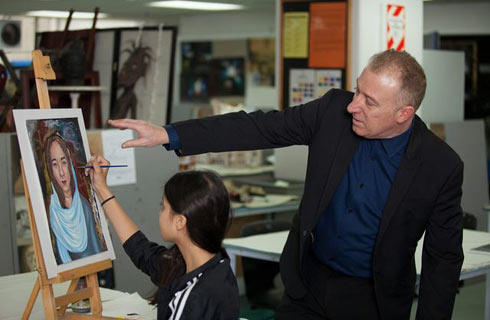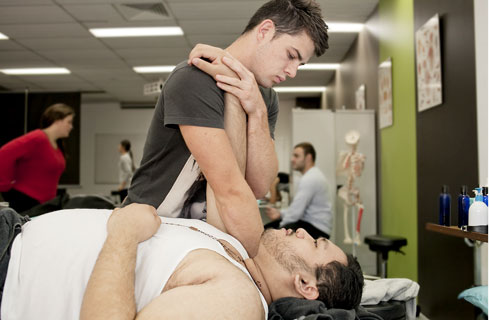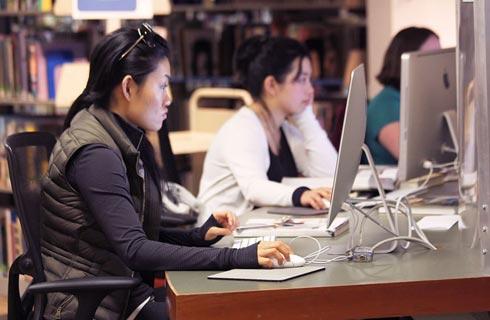理学硕士/研究生文凭科学传播
MSc/Postgraduate Diploma Science Communication

学历文凭
Masters Degree (Taught)

专业院系
School of Health and Social Wellbeing

开学时间

课程时长

课程学费

国际学生入学条件
IDP—雅思考试联合主办方

雅思考试总分
- 雅思总分:
- 托福网考总分:
- 托福笔试总分:
- 其他语言考试:
CRICOS代码:
申请截止日期: 请与IDP联系 以获取详细信息。
课程简介
Study in the renowned Science Communication Unit, a research centre recognised for internationally leading research, creative practice, and outstanding teaching. Our teaching block structure supports study alongside other commitments, while you build connections and gain in-demand skills. Why study this course Our MSc Science Communication is well-known and widely respected. Teaching and research are shaped in collaboration with active practitioners to ensure you'll gain the skills that employers need. The course blends theory with practice, helping you understand how to communicate science effectively and why it matters, so you're prepared for a career as a professional science communicator in an evolving landscape. Why UWE Bristol You'll study in our Science Communication Unit, a research centre known internationally for its creative practice, outstanding teaching, and research that connects science with society. You'll be taught by experienced academics and hear from visiting lecturers working across science communication; recent speakers include the BBC Natural History Unit, British Science Association, the Pervasive Media Studio, and a range of science communication consultancies, universities, and research councils. You'll gain a theoretical foundation in areas such as public engagement with science, understanding audiences, digital media, inclusive approaches to science communication, and models of informal learning. Through optional modules in science writing, video and audio production, and face-to-face public engagement, you'll build a portfolio of work that showcases your expertise as a science communicator. The course is also designed with flexibility in mind, using teaching blocks that support students balancing study with work or caring responsibilities. Lectures, workshops, and seminars are supplemented by directed and independent study, guided online learning, tutorials, and mentoring. Where can it take me You'll graduate with a strong mix of academic knowledge, practical experience, and professional connections. Your final project allows you to explore your interests in depth. You may choose to publish your work. There is also the opportunity to collaborate with partners across the sector and, as Bristol is a hub for science media and engagement, you'll be surrounded by opportunities.
相关申请
 预科
预科 奖学金
奖学金 实习机会
实习机会 在校学习
在校学习 跨境学习
跨境学习 校园授课-线上开始
校园授课-线上开始 在线/远程学习
在线/远程学习
开学时间&学费
学费信息仅供参考,请与IDP联系以获取详细信息
| 开学时间 | 时长 | 学费 | 地点 |
|---|
学校排名

世界排名601
数据源:
泰晤士高等教育世界大学排名
关于西英格兰大学

布里斯托西英格兰大学(UWE Bristol)地处布里斯托市,有三个校区。布里斯托是一个多元化的繁华城市,有大量学生人口,非常适合学习和生活。布里斯托还是一个工业中心,当地就有很多建立人际关系和就业的机会。近几年,UWE Bristol的声誉日渐高涨。在过去六年中,大学对校园设施的投资超过3亿英镑。该大学在雇主中拥有良好的声誉,91%的毕业生在毕业15个月后从事工作或继续学习(高等教育统计局(HESA)2023年发布的毕业生成果调查结果)。其强大的校园社区有160多个体育俱乐部和社团,以新的学生会大楼为中心,是校园生活的核心。该校为国际学生提供迎新活动和一日游,全年期间还会举办很多活动,以此帮助国际学生适应新环境,让他们感觉像在家里一样轻松自在。该大学为其国际社区提供良好的支持,并被提名为2022年Whatuni国际大学。
本校相关课程

研究机器人理学硕士
学历文凭
Masters Degree (Research)
开学日期
课程费用总额


硕士 野生动物电影制作
学历文凭
Masters Degree (Taught)
开学日期
课程费用总额


理学硕士运输计划
学历文凭
Masters Degree (Taught)
开学日期
课程费用总额


理学硕士/研究生文凭/研究生证书运动与锻炼心理学
学历文凭
Masters Degree (Taught)
开学日期
课程费用总额


研究生教育证书中学初级教师教育现代语言
学历文凭
Graduate Certificate
开学日期
课程费用总额


教育学研究生证书中学初等教育数学
学历文凭
Graduate Certificate
开学日期
课程费用总额

其他相关课程

传播学学士(新闻学)
 悉尼科技大学
悉尼科技大学学历文凭
Bachelor Degree
开学日期
课程费用总额


数字媒体与传播学士学位
 威斯敏斯特大学
威斯敏斯特大学学历文凭
Bachelor Degree with Honours
开学日期
课程费用总额


MA Digital Media and Society
 卡迪夫大学
卡迪夫大学泰晤士高等教育世界大学排名:204
学历文凭
Masters Degree (Taught)
开学日期
课程费用总额


电影,电视和广播文学(荣誉)文学士学位(基础入学)
 中央兰开夏大学
中央兰开夏大学学历文凭
Bachelor Degree with Honours
开学日期
课程费用总额


新闻,媒体和英语文学(荣誉)文学士学位
 卡迪夫大学
卡迪夫大学泰晤士高等教育世界大学排名:204
学历文凭
Bachelor Degree with Honours
开学日期
课程费用总额


新闻学学士-国际研究学士
 伍伦贡大学
伍伦贡大学泰晤士高等教育世界大学排名:247
学历文凭
Dual Degree
开学日期
课程费用总额










